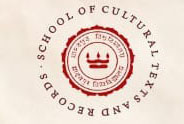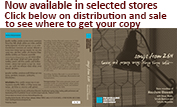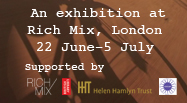
This rare and precious recording would have stayed in the British Library Sound Archives, unnoticed, unnamed and unplayed, had I not accidentally come across it in 2018. The process of naming Nabanidas’ voice was a longwinded journey. Young Purna Das Baul was in the concert with his father Nabanidas in 1956. In 2019, it was very emotional for Purna Das to listen to his father, sister, brother-in-law and friend, as well as to himself as a young man.

This was the materialisation of that trip to the festival of the bauls that Arnold Bake had been planning with Kshitimohan Sen ever since he came to Santiniketan for the first time in 1925. In 1932, his companion was not Kshitimohan however, but his trip with Corrie and others was facilitated by the District Magistrate, Gurusaday Dutt…

When friends decided to start a festival of the music of the bauls and fakirs of Bengal at Shaktigarh maath, a community ground in Jadavpur, South Kolkata, in 2006, quite naturally we got drawn in. Not so much as The Travelling Archive, but as individuals. In fact, we hadn’t started to think of our work […]
On 29 October 2018, I was at the British Library sitting at the desk of Lead Curator of World and Traditional Music, Dr Janet Topp-Fargion, looking at some papers relating to Arnold Bake, the Dutch scholar of Sanskrit and Indian music, pioneer field recordist in the Indian Subcontinent in the 1930s and 40s, for my […]
It is strange to write a session note more than a decade after a field recording trip, to recall details of an experience of 2009 in 2020. Now, it is the recording that has to take us back to that day, also the photos and recordings from days before and after the session. That is […]
If someone asks what are they are singing about, reply, what is you are listening about? What are you looking at?–Ruchir Joshi in Eleven Miles In this journey, the word baul has been one of the most difficult to understand and interpret. There are countless works and initiatives on the bauls—religious studies, ethnomusicological and anthropological […]
Tuntun Fakir of Kushtia in Bangladesh had come to sing at our 10th Baul Fakir Utsav in Jadavpur, Shaktigarh in January 2015. The tenth year was a very special occasion for us, for while it marked a milestone in the life of the festival, for some of us it was also a closure of sorts, […]
A team from Sylhet was invited to take part in Baul Fakir Utsav 2010 –they were mainly musicians we had come to know through our fieldwork in Sylhet. Ranesh Thakur, the main singer of this session, is the younger brother of our departed contributor, Ruhi Thakur. Here he is singing a song that Ruhi da […]
From Ruhul Amin to Ahmed Moyez. From Ahmed Moyez to Noman’s house in Bethnal Green in East London, where many of the people I had met about a year ago in Betar Bangla radio station had also come. It was our Bethnal Green Party, a communal celebration of Bangladeshi immigrants, with friends, food and music. […]
I had heard about the singer Debdas Baul’s long association with researchers and filmmakers, especially Bhaskar Bhattacharya (who passed away in 2006), and I was told he understood the ‘outsider’s’ needs very well. Rangan Momen had said: You must meet Debuda, he will know where to take you. During these last six years, Debdasda has […]
This was my second field trip with Sukanta. The first one had also been to the temple town of Tarapith for the songs of the blind singer, Kanai Das Baul, but the session had got washed by rain, so we had decided to return the following week. My familiarity with the music of Kanai Das […]

The Baul Fakir Utsav, held in the first, sometimes second weekend of January every year in our south Kolkata neighbourhood of Jadavpur-Shaktigarh, is a festival a group of friends have been organising since 2006. We are also in that group. The festival journal in Bangla brings to us many ideas expressed in many voices and […]
This was my first field trip, a kind of recce before the formal start of my IFA-supported project to explore biraho in the folk repertoire of Bengal. I went with my friend, Sudheer Palsane, a cinematographer. He had a Sony PD 150 DV camera, which was our recording equipment for the session. The reason for […]

I went with the disembodied voice of the seamen, plucked from the sound archive, to the one who keeps songs in her body. Sushoma Das was 90 when I went to her in 2018. She could hear what we can’t.

When Arnold Bake had recorded Indira Devi Chaudhurani, Rabindranath’s niece who was one of his best friends and confidante, in her home in Santiniketan, she was 83 but her voice was still steady and her memory intact. In 2016, Supriyo Tagore listened to his father’s aunt, who used to live with them at the close of her life, and memories happy and sad came flooding to his voice.

Imam Bux Boyati and his team, jarigan singers from Atharobari, Mymensingh, were recorded on 23 February 1932 at the Suri Mela, Suri, district headquarters of Birbhum. They were recorded twice, on film in 1931 and then on wax cylinders, Bake India II/112-17 the next year. It was Gurusaday Dutt, the district magistrate who organised the festival.

Pinakin Keshavlal Trivedi was a Gujarati student in Santiniketan whom Arnold Bake had recorded in 1931. I met his son, Devkumar Trivedi, in Delhi in 2019.

In 2019, I concluded this series of trips, by reaching Kunuj and Dariapur and Shailagachi villages, and found the son of one the singers Bake had recorded and grandson of another. Going by boat on the Chalan Beel, it felt like a reward after a long wait, Uday, Shoikat and I said we would go back again, this time to people we knew and not to people we were looking for.

I have shared the POW recordings with sound recordist Ali Ahsan of Kushtia, who carries in him a long history of listening to such songs, and the songs of the bauls and fakirs too. There used to be puthi readings in his home in his childhood, his grandfather would teach him to listen. Hence the old archival recordings, though buried under surface noise, revealed meanings to him which I would not be able to understand on my own.

Kusum is described as a Bhumij woman, who sings a ‘jumur’ or jhumur, the most popular form of music of Purulia, Bankura and parts of Jharkhand. Bake recorded her in Kenduli on 16 January 1932. There is also a film of her singing and dancing, with her drummer partner.

Chitralekha Choudhury is a renowned Rabindrasangit singer, who studied in Santiniketan in the 1950s. Her mother, the painter Chitranibha Choudhury was one of the first female students of Kala Bhavan in the 1920s. When Arnold Bake had recorded Chitralekha in March 1956, she was a young girl of fifteen. When I went to meet her with her song in Kolkata in 2015, Chitralekha had many great stories of historical significance to tell.

Arnold Bake had recorded the fakirs in Naogaon on 28 February 1932. Mostly all men, some described as ‘ganja workmen’, and one woman who sang the maximum number of songs for him. I felt drawn to her. I had also seen photographs from Naogaon in Leiden.

The reasons for calling this sub-chapter Sadhushongo (in the company of the sadhu or the wise one) are many. Firstly, it takes off from a letter Bake wrote to his old teacher and friend, the wise Kshitimohan Sen, in 1955. Kshitimohan had inspired a love for baulgan in Arnold Bake, a musical practice where ‘shadhushongo’ is way of teaching and learning the song. Secondly, I went with the letter to meet my own old and wise teacher, Kshitimohan’s grandson Shibaditya Sen, and he gave me some recordings of Khoda Baksh Sai and others.
‘Every passion borders on the chaotic but the collector’s passion borders on the chaos of memories.’ –Walter Benjamin, ‘Unpacking my Library’, in Harry Zohn transl. Illuminations, edited with an Introduction by Hannah Arendt. (New York: Schocken Books, 1969), p.60. My first encounter with Arnold Bake’s Bengal recordings was at the British Library in 2004. It […]

‘Moving with the Song: Loss and Longing in the Migrations of Bengal’ is a paper Moushumi presented at a Sound and Anthropology conference in St. Andrews University in 2006, convened by anthropologist Stephanie Bunn and sound scholar and artist Cathy Lane. This was one of our earliest attempts to talk about our field recordings.

Songs Grow Out of the Land This is a 66 minute audio essay on The Travelling Archive, an archive of field recordings from Bengal, written and presented by singer and writer Moushumi Bhowmik. The essay was written for presentation on Baba Betar, an internet radio, that partnered Chobi Mela International Festival of Photography […]

In 2011 we were commissioned to make a piece of work by the National Maritime Museum in London, using footage from their film archives, as part of a series of programmes titled ‘Traders Unpacked’ which they had organised to mark the opening of a new gallery in the museum, on Britain’s trade with Asia. The […]



















 Moushumi will present at a workshop on THE ARCHIVE AS A KNOWLEDGE SITE: THE EXPERIENCE OF EUROPE AND INDIA, Organised by SCTR, JU in association with CNRS, France and IRN-AITIA.
Moushumi will present at a workshop on THE ARCHIVE AS A KNOWLEDGE SITE: THE EXPERIENCE OF EUROPE AND INDIA, Organised by SCTR, JU in association with CNRS, France and IRN-AITIA. Moushumi spent five days with students and teachers of the Tata Institute of Fundamental Research in Mumbai and also spoke at the Homi Bhabha Centre for Science Education. Her main talk was on The Travelling Archive
Moushumi spent five days with students and teachers of the Tata Institute of Fundamental Research in Mumbai and also spoke at the Homi Bhabha Centre for Science Education. Her main talk was on The Travelling Archive







